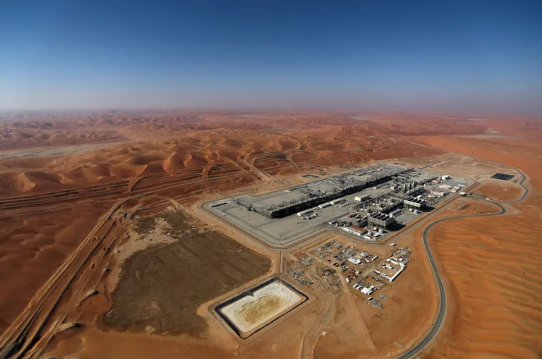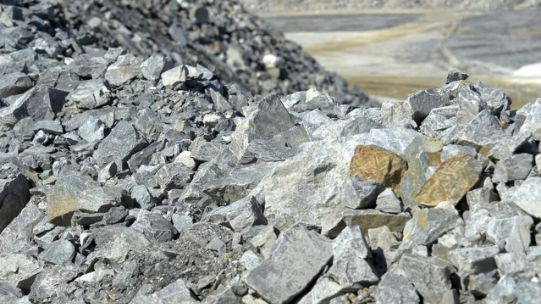
From oil to lithium : the vital energy transition in the countries of the Middle East and North Africa

An essential metal for the future of the world economy
Lithium has become essential for manufacturing the batteries that power electric cars. Global demand for lithium is set to triple by 2030, driven by the goal of many countries to achieve carbon neutrality. The race to secure lithium supplies is intensifying. Thus, owning exploitable reserves or mastering extraction technologies is becoming a strategic priority, both to reduce dependence on imports and to gain a foothold in green technology value chains. Indeed, for the MENA region, the stakes are twofold: use these resources to support a low-carbon economy, while attracting technological investment to transform economies still largely dependent on hydrocarbons. As we have seen, the fundamental issues for MENA countries lie in their ability to industrialize in order to build a robust, low-carbon economy, while guaranteeing sovereignty over strategic energy resources such as lithium.

The promise of lithium-rich soils
The MENA region's energy transition and lithium supply are not the stuff of fantasy - quite the contrary. The region's rich soil and technological capabilities give it the means to dream big and achieve great things. In the ambitious Gulf States, still too dependent on hydrocarbons, lithium is seen as a vital opportunity to reinvent their economies.
In Saudi Arabia, for example, this ambition is reflected in exploration initiatives and international partnerships to secure extraction technologies. Its neighbor, the United Arab Emirates, is putting innovation at the heart of its course, with advanced research into extracting lithium from the brines produced by desalination.
In North Africa, lithium offers incredible development potential. In Morocco, for example, numerous lithium deposits have yet to be discovered in the rock formations of the Atlas Mountains. Algeria, with its vast Saharan zones rich in rare minerals, offers gargantuan untapped potential, unfortunately slowed down by political instability and a lack of geological studies. In Tunisia, the south of the country, particularly near the salt basins, shows great potential, even if the lack of suitable regulatory frameworks remains an obstacle. Libya, despite its internal conflicts, could one day reveal hidden treasures in its Saharan brines. Lastly, Egypt, with its salt basins and desert regions, possesses assets that are still underestimated, with attention still focused on more traditional resources such as gold.
The Dead Sea, meanwhile, a resource shared by Israel and Jordan, is a source of great hope. Its mineral-rich brines represent a phenomenal potential source of lithium. Israel, leading the way in exploration, has already taken several steps towards sustainable exploitation. However, Jordan, while promising, still needs to step up its efforts to keep up with its neighbor and the challenges of our time.
Iran and Afghanistan on the threshold of a turning point
In Iran, the recent discovery of an 8.5 million tonne lithium deposit in the western province of Hamadan is reshaping the country's energy transition. Estimated to account for around 10% of the world's lithium reserves, this discovery could position Iran as a key player on the global market. However, full exploitation of this deposit will only be possible if Iran is reintegrated into the international political game, as international sanctions are currently hampering access to advanced technologies and foreign investment. Despite this, the discovery represents a giant step forward for Iran, and demonstrates that the country has what it takes to play a major role in the global energy economy. If geopolitical conditions improve, there is no doubt that this natural resource could become the catalyst for a regional energy transition.
Afghanistan, meanwhile, is often referred to as an “untapped mineral treasure”, not least for its enormous lithium potential. According to estimates by American geologists, the country could hold deposits worth several trillion dollars, with a significant proportion of lithium. These reserves, concentrated mainly in the provinces of Ghazni and Helmand, could rival those of the world's largest producers. In addition, the country could also benefit from the growing global demand for lithium by attracting foreign investment, notably from China, which is showing increasing interest in Afghan mining resources.However, the political and security situation remains a brake. Instability, combined with a lack of suitable infrastructure, prevents any large-scale exploitation. If these challenges are overcome, Afghanistan's lithium deposits could not only boost the national economy, but also transform the country into a key player in the regional and global energy transition. In this sense, Afghanistan, like Iran and other countries in the region, embodies hope and potential, both immense and yet so fragile.
to learn more : https://www.abramundi.org/post/the-gulf-states-race-for-strategic-minerals-to-ensure-their-energy-transition).
Sources :
https://www.agbi.com/analysis/renewable-energy/2024/04/lithium-prices-market-gulf-production-ev/
https://www.iris-france.org/163703-lafghanistan-est-il-vraiment-larabie-saoudite-du-lithium/

